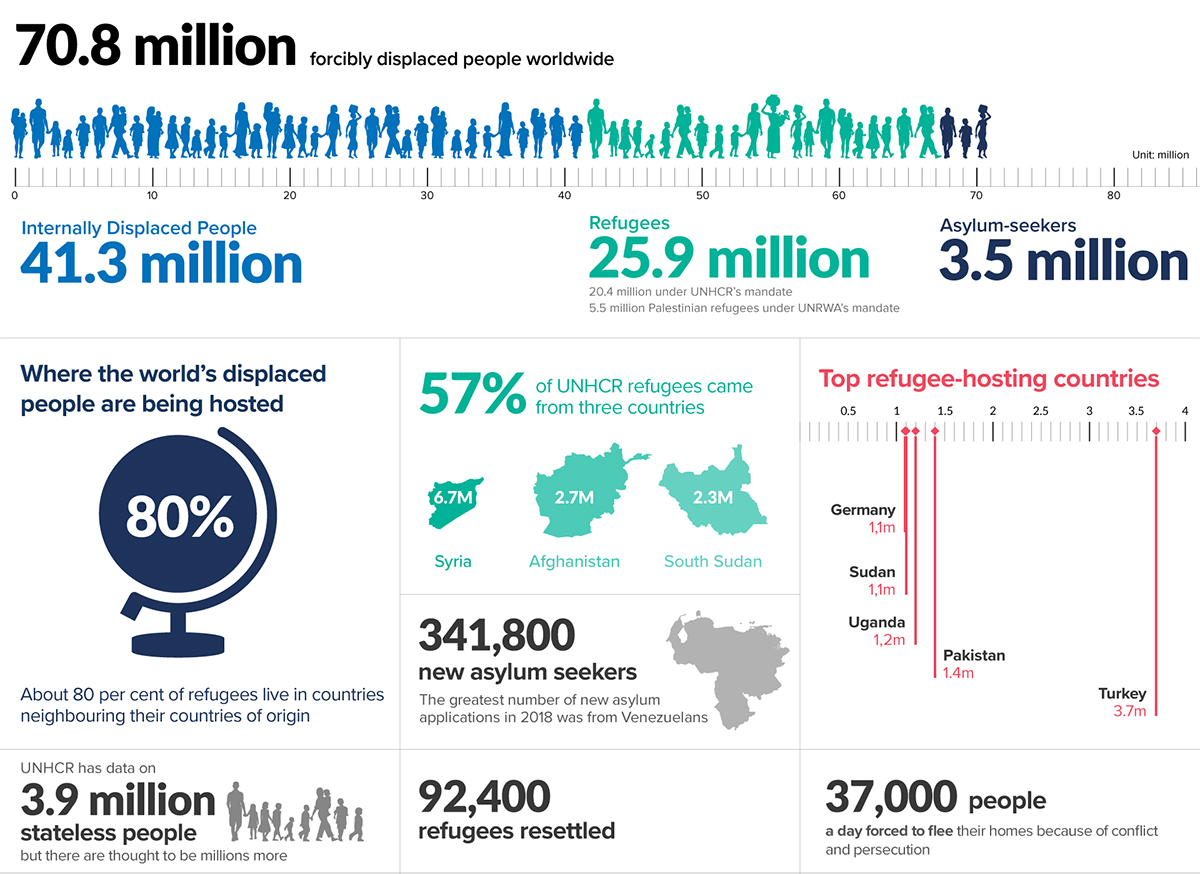The definition of a refugee was forged by the 1951 Convention Relating to the Status of Refugees, and then adopted by the United Nations General Assembly: A refugee is a person, who “owing to a well-founded fear of being persecuted for reasons of race, religion, nationality, membership of a particular social group or political opinion, is outside the country of his nationality, and is unable to, or owing to such fear, is unwilling to avail himself of the protection of that country.” (Article 1, A, 2) Filippo Grandi, the United Nations High Commissioner for Refugees at UNHCR, the United Nations’ agency specialized in refugee assistance, describes the present situation with pressing words: “The combination of multiple conflicts and resulting mass displacement, fresh challenges to asylum, the funding gap between humanitarian needs and resources, and growing xenophobia is very dangerous.” Photo Credit: Refugees & Migrant Section, Vatican
Recent data shows that the average refugee displacement is 10 years. Once a person has been a refugee for five years, the average duration of displacement is a staggering 21 years. Not a single European country is placed on the UNHCR list of top hosting countries for refugees. Only 17 per cent of the displaced are hosted in Europe, comparing to 30 per cent hosted in Africa and 26 per cent hosted in the Middle East and North Africa.
UNHCR is the biggest global agency that takes care of refugees and implements global policies towards them. It is, in fact, symbolic that the current Secretary General of the United Nations, Mr António Guterres, formerly hosted a post of UN’s High Commissioner for Refugees for ten years before becoming Secretary General in 2015.
According to UNHCR (Global Trends, 2017), migration is “concentrated in the poorer parts of the world. Europe, accounting for more than 20 per cent of global income, has 11 per cent of the world’s refugees. The United States, with 25 per cent of global income, has 1 per cent of the world’s refugees”.
David Miliband former Head of British Foreign Office and now director of the International Rescue Committee describes it as follows:
“The ‘refugee crisis has the following components: record numbers of people are fleeing violence; they are displaced for longer than ever before, they are concentrated in a small number of countries outside the wealthy parts of the world, and they make up a growing proportion of the world’s poor. And there is one additional factor: climate change is not just a looming danger; it is part of today’s equation.”
Photo Credit: George Castellanos
Critical numbers call for critical responses from world leaders. As for October 2018, the United Nations are working on the document called the ‘Global Compact’, which “will be the first, intergovernmentally negotiated agreement, prepared under the auspices of the UN, to cover all dimensions of international migration in a holistic and comprehensive manner.” The UN started to work on the document in 2016 and is aiming to accept the document — not as a resolution but as a document for further proceedings and negotiations by member states in Marrakesh/Morocco, in December 2018.

